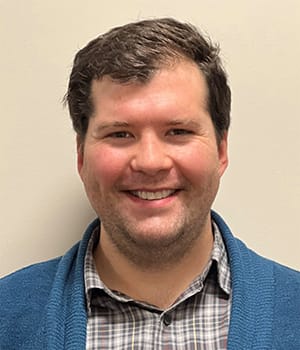From the Couch to the Commons: Mental Liberation Through Eco-therapy Part II
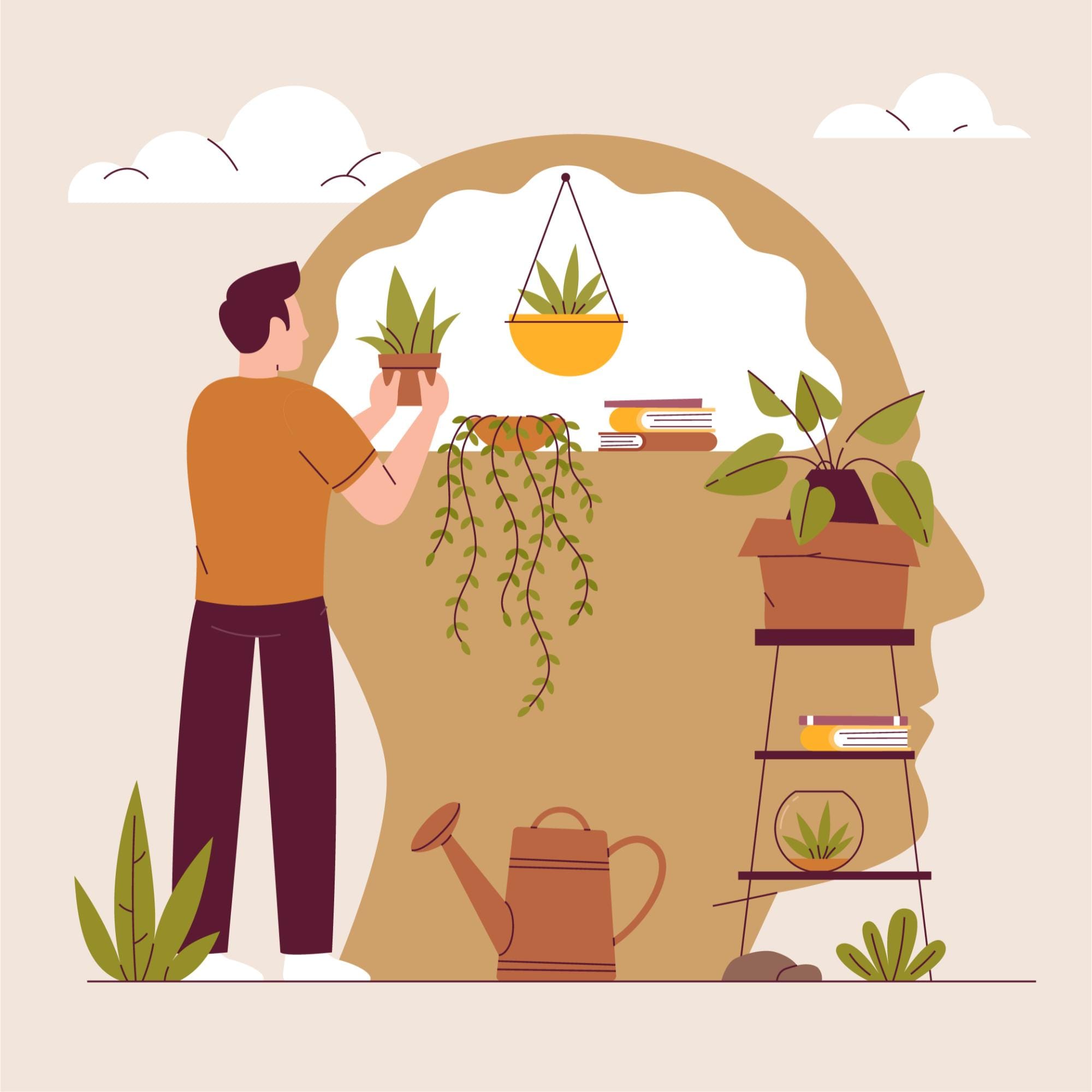
Summary:
In this two part interview Chris Kemp emphasizes the interconnectedness of ecological and sociological oppressions in his therapeutic approach. He helps clients explore how systemic issues like climate change impact their mental health without imposing his own values. For example, in Michigan, industrial pollution often triggers feelings of powerlessness. Kemp validates these emotions as natural responses to real problems, encouraging clients to see their pain as a signal of what matters to them. He fosters resilience by shifting the focus from individual helplessness to collective action, aligning with Acceptance and Commitment Therapy (ACT), which centers on personal values and meaning.
Kemp also discusses his experimental work in ecotherapy, including a therapeutic garden at his clinic. The garden, designed with native plants for sustainability, offers an alternative therapy setting. While still in early stages, clients have reported feeling more grounded and connected during sessions outdoors. Kemp envisions expanding this into community-based ecological restoration projects, blending therapy with hands-on environmental work to address both personal and planetary healing.
He critiques traditional therapy’s tendency to individualize mental health struggles, advocating instead for a systemic lens that acknowledges broader societal and ecological contexts. Kemp’s future goals include developing mutual-aid-style group therapy focused on eco-restoration, where shared activities foster connection and empowerment.
The interview closes with Kemp encouraging support for local mutual aid efforts, particularly those addressing housing, food security, and environmental justice.
To read part I:
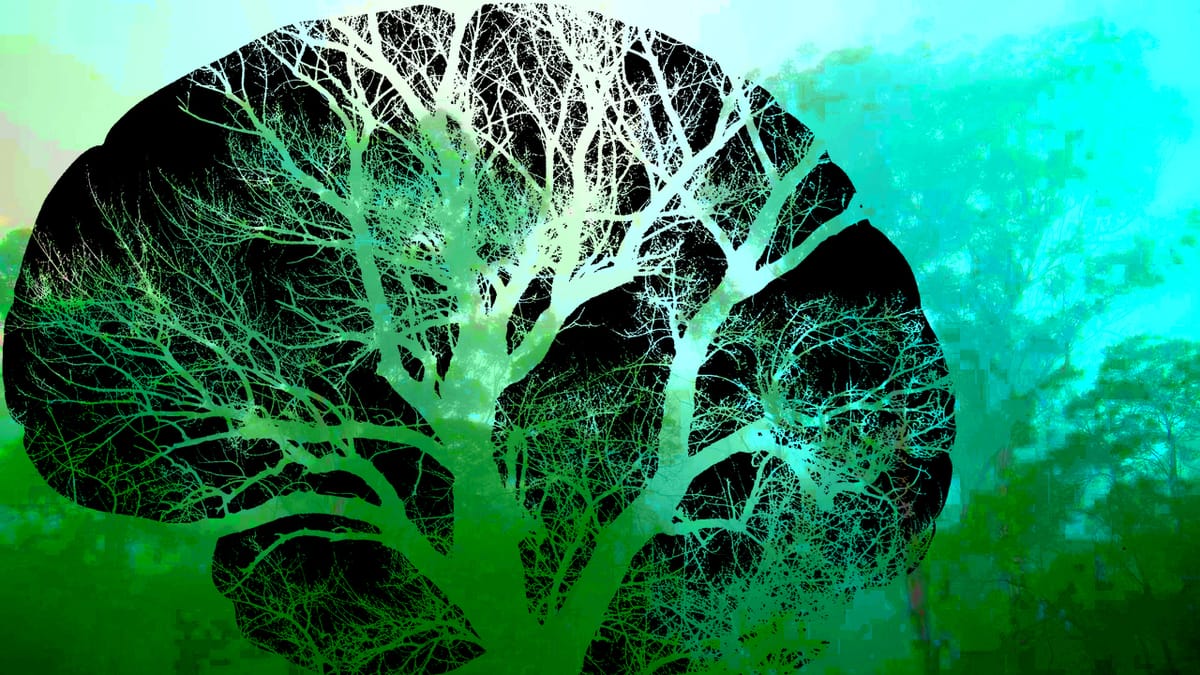
Jeff Jones (Liberation Psychotherapy)
Can you share an example of how you facilitated healing through reconnection with land or relationships with animals?
Chris Kemp
It's very much a work in progress. Part of me wishes I could say, we've had this big project going and we've seen fantastic results but it's small scale.
I do have a lot of dreams with goals, visions, and I'm happy to discuss that further. As far as things that have actually happened thus far- at the clinic I work at, we were able to get a grant to fund this project where we built a therapeutic garden. It's essentially a milieu for therapy that's just not the office.
We did research to figure out if it was gonna be feasible since it’s a clinic in the middle of a town with a big parking lot surrounding it. We're not in the country where there's abundant land for building something like a garden. I’ll describe it because I’m feeling pretty excited about it. We put gravel in a section of the parking lot that has gone unused and built fairly large boxes that we planted mostly native plants in. In the eco restoration world there's a debate on native plants, what they are, what's the value of focusing exclusively on them versus mixing with non native plants. There's this distinction drawn around 1492 that any plant that was supposedly in this area before that makes it native and things that came in after are not. It’s an interesting debate that dovetails with ongoing conversations between indigenous and non indigenous groups. We decided to do native, partly for the benefit of local ecology, whether that's birds or insects and for our time. Native plants tend to be fairly robust to weather variations and Michigan is a very cold state in the winter, quite a hot state in the summer.
Using native plants would also allow us to not have to pay people—I'd like to support attendants but there wasn't the ongoing financial support for that. So essentially it’s volunteer run with pretty light maintenance.
It's quite beautiful, if I may say so.
Privacy for patients in psychotherapy is really important so we do informed consent, talking through what it looks like to do therapy outside. If patients feel uncomfortable at any point we can always pause and walk back inside. Like I said, it's a work in progress. Clients I have used it with seem to really enjoy it.
There aren't specific activities to do in the garden per say—we're not asking clients to do garden work. That's for a few reasons. One is just organizational liability. I think we'd probably want some more robust staffing involved. I think if we were to do group therapy sessions out there, we would need two therapists. Right now I'm the only therapist in our office who uses it for the most part. So there are some constraints and I'm open to evolving how we use the garden. I would love to get clients to use it in an experiential way.
Using the metaphor, ‘what do we need to weed from our life?’
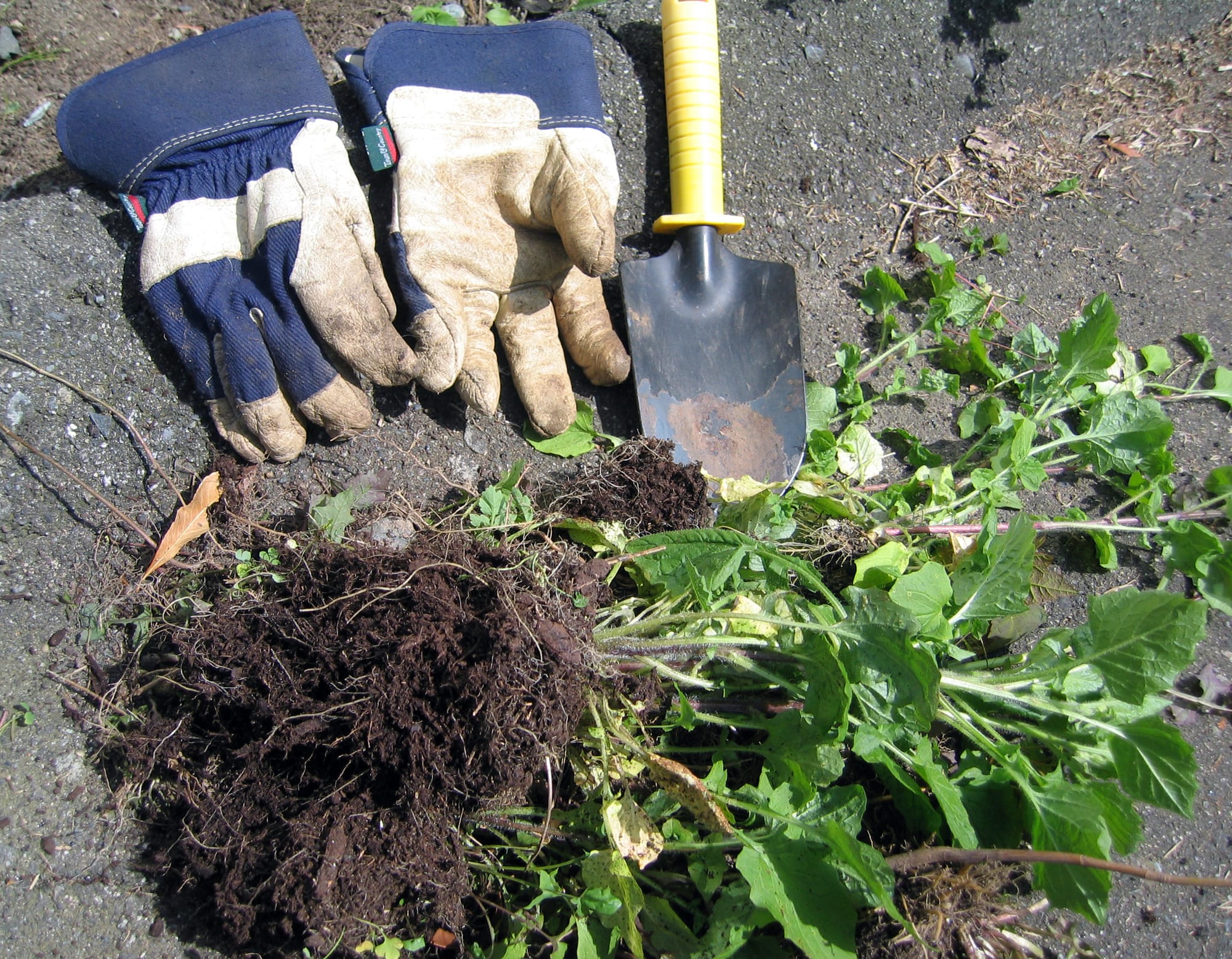
It’s small scale, we’re not putting thousands of clients through this. Last year was the first year we had it. I don't think scale is the primary criteria. The experience of the people engaging with it is what is important. The very change of doing a therapy session in the garden seemed kind of magical for clients. A few clients stated they felt more buoyant. There's some sensory qualities to being in that environment. The smell, the wind, sunlight.
Jeff Jones (Liberation Psychotherapy)
This example may seem strange, but there's some research that shows when there's a funeral, many of the attendees tend to have sex that night. It's not a sexy thing, it's grounding. In grief we can feel as if we are floating away and this grounding brings you back. I believe with gardening you’re literally getting your hands in dirt, it’s connecting, it’s that grounding. If you're feeling very lonely or disassociating, having your hands in dirt may help you feel like you’re part of something.
Chris Kemp
Yes. I definitely hope to expand the experience of therapy in the garden towards more of that. Understandably we need to work incrementally. It's based on the direction of administration leadership at the clinic. There's a lot of government oversight. It’s not like the feds are going to be on us if we start gardening with clients, but you know, I think they we just want to proceed cautiously.
I should have mentioned this with the first question of what brought me to therapy, but there's a very magical garden I got to work at in Seattle. It was a community garden not a psychotherapy setting but it was very therapeutic for me. Some of that is very much rooted in putting your hands in the soil like you were just talking about—interacting with the plant and a lot of it was that with other people. Having a community group was an essential component of that experience. A group that had some core people. Some people would kind of flow in and out but everyone really belonged. I'm not the first person to think of this but it was about ecological restoration.
I envision this as group therapy. I think it could tie together all the themes we’re talking about of togetherness versus loneliness, ecological restoration versus destruction. People having a place rather than feeling like they're just contributing to systems that they don't want to. It would really require a level of collaboration that I look forward to logistically figuring out. Both a barrier and opportunity for sure. I prefer to see it as an opportunity, but it does take some legwork. Specifically figuring out where you would do the activity. I think there's a lot of potential options. The one that we’ve been looking at is some public land that’s currently being stewarded by the University of Michigan.
Jeff Jones (Liberation Psychotherapy)
Maybe this is off but I'm imagining it as like a mutual aid therapy, or what is known as peer-to-peer therapy, not run by a professional?
Chris Kemp
That’s squarely on topic. I think that's sort of ultimately what I care about. How can we structure this activity. In some ways it doesn't really require forcing the therapy experience instead creating the right conditions for it to naturally come about. Point taken about not necessarily needing a professional to guide that. I also think through our training and experience that there is some potential benefit gained by having someone there to foster the conversation.
If it's a trauma-specific group, it might be helpful to have a professional there. Maybe even two or more professionals there.
There's many ways that it could be structured. It could be sort of a facilitated debrief session after the activity, could be during, having experiential therapy as dialogues during the eco-restoration activity. I'm still working out the details, but I really love the idea of having the mutual aid approach to it. The notion of a therapist delivering expertise never really sat well with me, anyway, just in general mainstream therapy anyway.
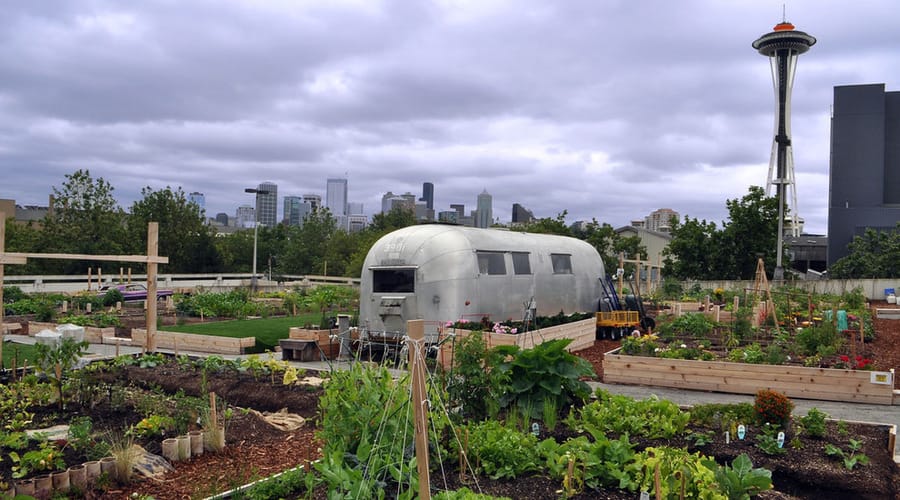
Jeff Jones (Liberation Psychotherapy)
Have you seen any similar eco-therapy projects?
Chris Kemp
It's a great question. I've seen things that I feel are very much in that vein. Like I said, in my own experience, there was no therapist there. Yet it was definitely very therapeutic. I felt like there's a wellness aspect to being in community. Not to pathologize normal human experiences, but take social anxiety, for example. I don't want to say I was cured because I think that's a weird notion. Yet some things I was struggling with at the time were maybe coincidentally aided in that work.
Are we putting a label on this work, calling it eco restoration therapy where other people may have been doing this work all along? It just didn't have the professional credentials. It didn't have an economic model and all the privilege that comes with that. I'm positive other people are doing this work already. I just don't know if it's being framed as therapy who may be able to publicize it and talk about it in therapeutic terms. That said, I'm not aware of other people groups doing this specific work. I know horticultural therapy has been around for a long time. It's a beautiful activity, but the focus is more on the individual or the group you're working with. If I get to have this vision play out, I think I'd like the focus to be on individual or group in the ecosystem, dually.
Jeff Jones (Liberation Psychotherapy)
Some people in group therapy get self conscious and don’t feel safe speaking up. Many people like having a thing to do that helps with that those awkward moments. The eco restoration gives them that thing while creating with others.
Chris Kemp
For sure.
We'd probably also want to do some work of organizing around particular experiences that are bringing them to therapy in the first place. To get people who are there to work through childhood trauma, for example, and another person who's there for something completely different, say anxiety around work exploitation, not to weigh one against the other, but you could understand those are going to clash in a group therapy site, potentially.
Jeff Jones (Liberation Psychotherapy)
I really appreciate you doing this interview. I would love it if I could catch up with you later on and see where this project is going.
Is there any group that you care about right now to give a shout out to?
Chris Kemp
If there's a eco-restoration group local to a person's area, these are often the groups that are the most in need of money, support, time, or some kind of energy. I’m not saying don't give to a big national, regional, multinational international NGO, or mutual aid group. If you can’t find a local group to give to these larger groups are an awesome place to start if someone's looking for like where they can contribute.
I don't have a single group I want people to donate to because there's so many and I find it really difficult to dictate the best one.
Jeff Jones (Liberation Psychotherapy)
The old school saying of act locally, think globally. That's what I think is really important to be like it doesn't have to be the new biggest sexiest thing that's out there.
Chris Kemp
If I could also plug, not a specific organization, but people doing work that is being drastically affected by federal cuts. Whether it's housing, food insecurity, or even the National Weather Service at this point. Our basic services are being eliminated or cut back so severely that they aren't quite able to function like they should. I don't know exactly what would speak to an individual who may read this, but do something, because people in your area, people you know are probably going to be struggling quite a bit. The need for dual power mutual aid groups is going to be all that more important, not like it ever wasn't important, but all that more.
I don't mean to encourage tribalism, but local thinking has a lot of value. If you feel compelled to give to your local group that helps people on an international scale, that's awesome. I mean, there's a lot of people who could use some help outside of our local spheres right now.
